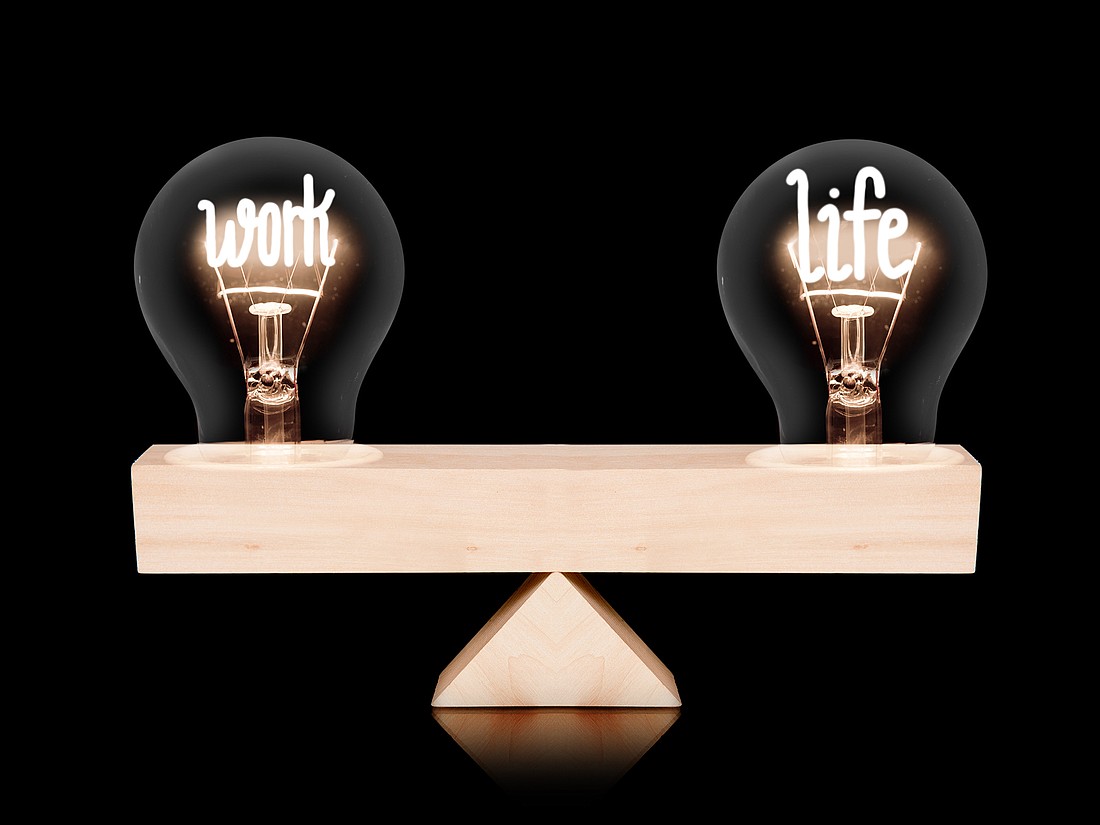
By Alexandria Mederos • JBA Young Lawyers Section
In March 2020, our world as legal professionals shifted. Much to our client’s benefits, we transformed our practices into virtual offices and courtrooms and learned to practice from almost any location.
Working from home became less challenging for most legal professionals, but at what cost?
Work-life balance is a construct I have discussed in almost every legal job interview. The idea is that employees split their time between their professional and personal responsibilities and the two obligations do not overlap or compete.
Prior to the COVID-19 pandemic, I had the ability to work from home on days I did not have court appearances or client meetings. But in most cases, I would work in the office for the majority of the week.
By the beginning of April 2020, like most attorneys, I found myself working primarily from home. With the uncertainty of the pandemic, I made every effort to ensure my client’s needs were met virtually, being available for them during most times throughout the day and into the evening.
I justified the later working hours as not only assisting my clients in the world we were living in, but also making the most of my work-from-home life, where I did not have hours of commuting. Overall, I increased my billable hours.
However, since April 2020 and the shift to virtual offices and courtrooms, I cannot recall the last true “sick day” I’ve taken and, full disclosure, I contracted COVID-19 in August 2020.
Even while dealing with illness, I still answered my client’s calls and emails and made one court appearance, remotely.
Recently, as I’ve begun to feel burnt out, I’ve come to a realization: Just because I can work anywhere and at any time, doesn’t mean I should. We cannot provide the best representation to our clients without first ensuring we are at the top of our game, mentally and physically.
So where does this leave me? I’ve taken a personal inventory of my pre-pandemic and post-pandemic professional and personal balance and have made every effort to find a way to have them mirror each other.
I’ve set boundaries for myself when working from home which stay true to not only my field of practice, but my personal needs. When I feel sick, I take the sick days and allow my body time to heal. I’ve committed to taking my paid time off this year.
I’ve made a choice not to schedule virtual hearings during my PTO when I should be spending time with my family. When I begin to feel mentally drained, I close my laptop and take the evening or weekend to be revitalized.
I encourage my fellow members of the Bar to take a personal inventory of your work-life balance. Set your own personal boundaries and commit to following through with them.
Alexandria Mederos is a litigation attorney at Cordell Law LLP.